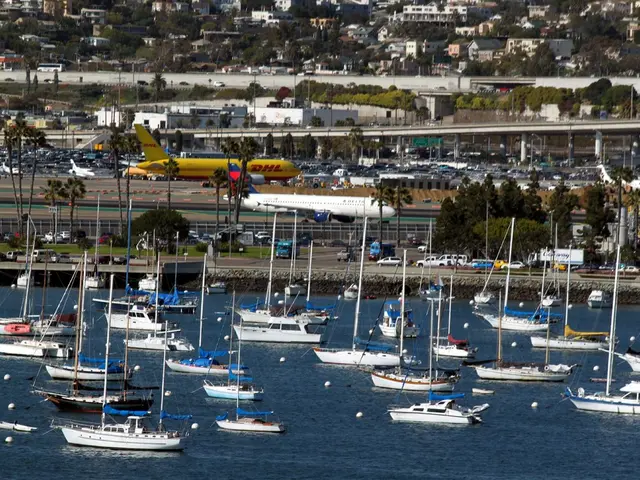Financial disruption imminent as European Union plans to exclude 20 Russian banks from SWIFT system, according to media reports.
The European Union is mulling over a new round of sanctions against Russia, with an emphasis on intensifying pressure on Moscow and pushing for a ceasefire in Ukraine. Reports suggest that the European Commission is consulting with EU member states regarding measures to disconnect more than 20 Russian banks from the international payment system SWIFT, lower the price cap on Russian oil, and impose a ban on the Nord Stream gas pipelines.
These steps aim to further restrict Russia's revenue and limit its access to essential technologies for arms production. The EU is also considering additional banking restrictions and finding ways to target Russia's 'shadow fleet' of tankers. Furthermore, the Commission plans to propose a reduction in the G7-set price cap on Russian oil to around $45.
A key aspect of the proposed sanctions package is the EU's intention to impose sanctions against the Nord Stream pipelines, reinforcing Europe's stance against the resumption of Russian pipeline gas supplies. The EU's new sanctions package is expected to be the 18th such measure since Russia's invasion of Ukraine in 2022.
The success of these sanctions may hinge on US participation, as US influence over global financial and shipping markets could be crucial in tightening the oil price cap. EU countries have so far adopted 17 rounds of sanctions against Russia, with the most recent focusing on targeting Russia’s shadow fleet and prolonging exemptions for certain energy projects. These measures have already made it more complex and costly for Russia to export oil.
The specifics of the new sanctions package are yet to be released, and unanimous approval among member states might be complicated by the lack of coordinated action with the United States and opposition from Hungary. Nonetheless, the EU remains resolute in its efforts to push for peace and stability in Ukraine.
- The intent of the European Union's proposed sanctions is to further restrict Russia's revenue, limit its access to technologies for arms production, and pressure Moscow to cease fire in Ukraine, affecting various sectors such as politics, war-and-conflicts, and general-news.
- The sanctions package under consideration by the EU includes measures like disconnecting Russian banks from SWIFT, lowering the price cap on Russian oil, and banning the Nord Stream gas pipelines, also targeting Russia's 'shadow fleet' of tankers within the finance and industry industries.
- As the EU plans to decrease the G7-set price cap on Russian oil, the success of these sanctions hinges partly on the cooperation of the United States, given its influence over global financial and shipping markets, which could assist in tightening the oil price cap.








